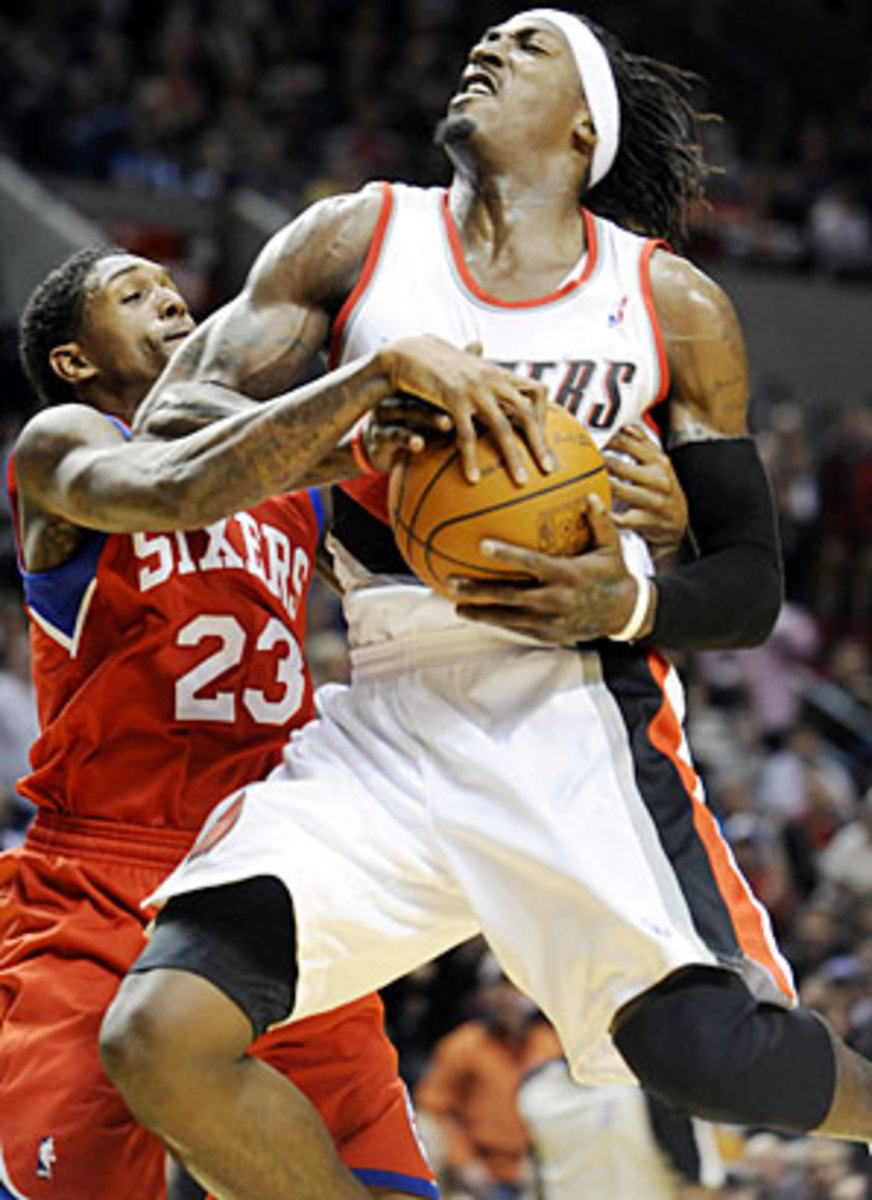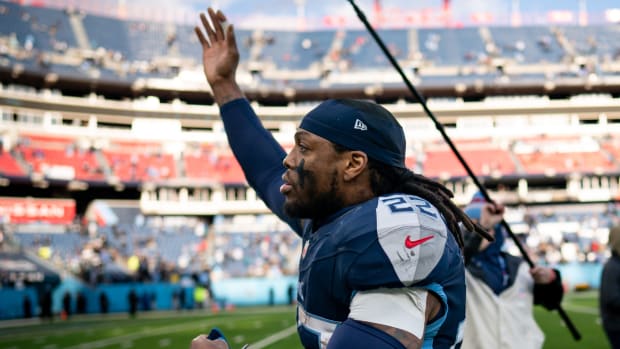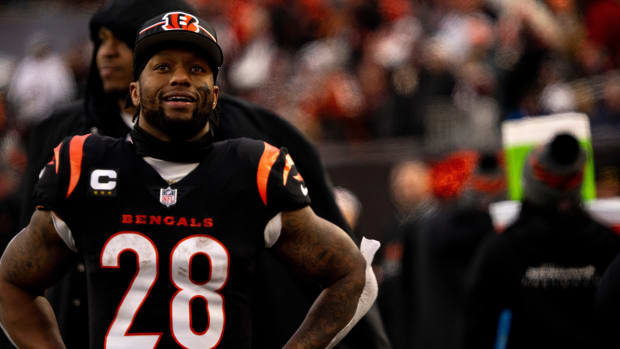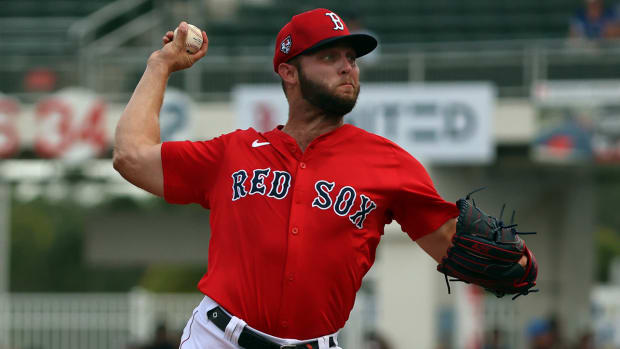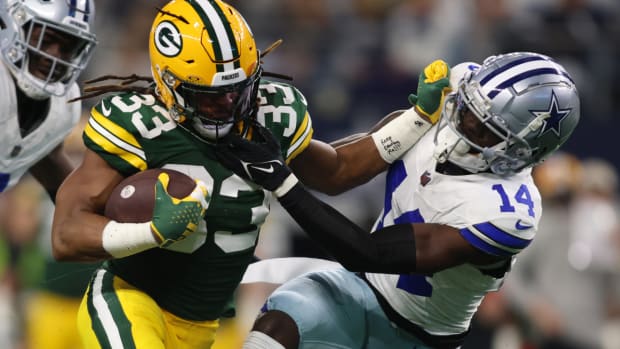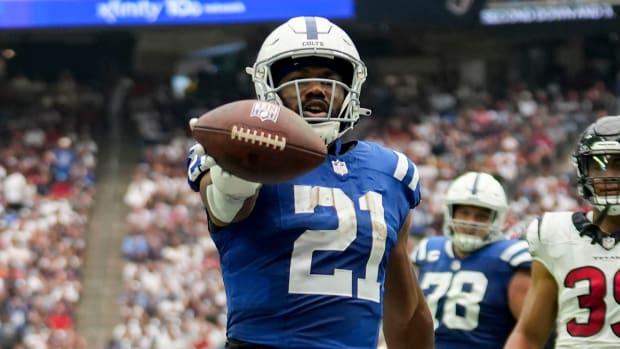Elite points guards often are an unnecessary luxury in NBA fantasy
Assists are overrated.
If you participated in a fantasy basketball draft preceding the NBA's 2011-12 season, you may have witnessed a point guard run somewhere between the second to the fourth rounds of the draft. By the third round of the draft, most teams that didn't draft a point guard were scampering to pick one, while the other teams that already did have a primary PG were off in search of a very potent secondary. We all know that in order to stay competitive in the categories shouldered by PGs fantasy teams need to be stocked up with more than one. And if you were drafting on pure fantasy value in the initial rounds, you might suddenly have found yourself staring at a huge gap when searching for your first PG. Past the fifth, you may have faced with the prospect of picking Darren Collison and D.J. Augustin to helm your fantasy team.
Sometimes your draft position does not favor you selecting a point guard at that particular time. Come the third or fourth rounds, do you get the best player available (regardless of position played) or do you "reach" and grab a point guard so that you do not get left out during the mad scramble?
Think about this: You can draft a team without winning assists and still be competitive.
Let's look at the strategic basis for drafting point guards. First, they are the best source of assists. Second, they are generally good contributors of steals and three-point shots made. Most have good free-throw percentages and many are also reliable scorers. But aside from assists, all of the other above mentioned categories can be filled by shooting guards and small forwards. In the Rotisserie format, it's understandable to not want to punt any category since forming a balanced team is generally the key to victory. However, in the Head-to-Head (H2H) format, assists is just one of eight or nine categories contested for during the course of every week's matchup. In H2H, it's acceptable to punt one or two categories in order to ensure better competitiveness in the others. In most cases, punting assists is a very rare strategy, but the truth is it is a viable approach to winning your fantasy leagues.
In the end, you will have a team that should be competitive in rebounds, blocks, field-goal percentage (most likely), turnovers (point guards tend to turn the ball over often) and either three-pointers made or steals.
How to draft it?
In the first few rounds focus on talent and pure fantasy value. While other drafters are reaching to secure point guards, you will be picking players who are projected to do better overall this season. You will generally wind up owning forwards that contribute across multiple categories. Players like Rudy Gay (threes and steals), Gerald Wallace (rebounds and steals), Paul Millsap (rebounds, steals) will fall into your lap during the draft.
To fill your team's PG slot, target middle-round guards who don't pass too much but contribute in other categories. Good examples are Tony Parker (points, FG%), Chauncey Billups (three-pointers made, steals), Jason Terry (3PTM, points).
How to transition into it?
Let's say you were able to draft one good quality point guard but weren't able to surround him with enough support for your fantasy team to be competitive in the assists category. Simply post on league's message boards that point guard "X" is up for trade and that you are looking for players who contribute to the categories that you want to improve on your team.
It's rare to find an up and coming point guard emerge from your league's post-draft free agent pool. On the other hand, there will be more than a fair share of forwards, and occasionally centers, who will show that they're worth that early season "quick grab."
With our strategy session over, here are a few good quality, non-point guard pick-ups out of the gates.
Al Harrington (F/C), Denver Nuggets -- He will be a good source of threes and his excellent conditioning coming into the season should see him as a competitive candidate for sixth man of the year award.
Marvin Willams (F), Atlanta Hawks -- He's been known to "do a little bit of everything" for most of his career, but so far he's shown that he's getting better at contributing that little bit MORE.
Spencer Hawes (C), Philadelphia 76ers -- He's shown a lot of improvement and is currently outperforming aging stars like Tim Duncan. Until he either runs out of gas or gets into a slump, he should be worth owning.
Mehmet Okur (C), New Jersey Nets -- He was initially having trouble adjusting to his new team, but now that he's filling in for Brook Lopez as the team's starting center he's proving to naysayers that he can be productive in a team that desperately needs some offensive help.
Carlos Delfino (G/F), Milwaukee Bucks -- Many managers threw him to the waiver wire when he started off the season dealing with a sprained wrist. When healthy, Delfino should be a great source of treys and steals.
































